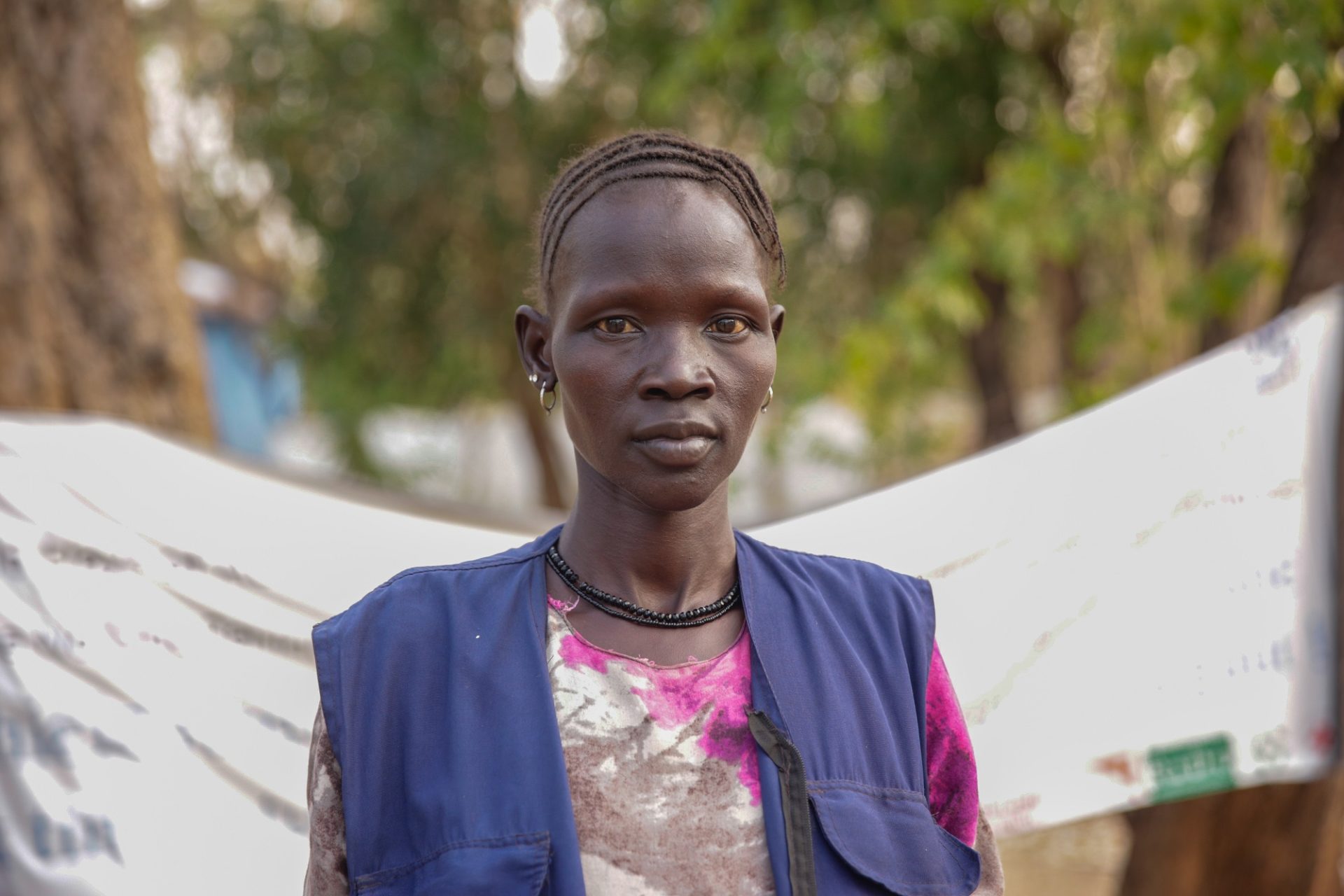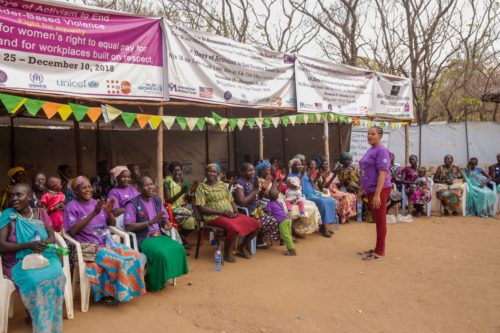
She’s a Mother of Six, a Refugee and on a Mission to Empower Women
Nyabong Puok is a 35-year-old South Sudanese mother of six living in Jewi Refugee Camp, in Ethiopia’s Gambella region. She is one of thousands of South Sudanese who fled their homes seeking a safe place where they and their families could settle and start a new life. Gambella is home to more than 410,000 refugees hosted in seven camps—with more arriving each day, escaping the escalating violence in their home country.
“The fighting intensified and we were so afraid that we would all die,” remembers Nyabong, tears streaming down her cheeks. “I lost all my brothers and one brother-in-law. One day, we heard loud explosions outside our house—our neighbors had been attacked. We stayed indoors until the situation calmed down, and that is when my husband and I decided to escape, because we thought we would be next to be attacked. We did not know whether we would actually survive and make it to a safe place, because there was violence everywhere. It took us a month to walk from South Sudan to Gambella, in the border region of Ethiopia.”
Carrying their children, Nyabong and her husband walked day and night, in pain and with little or no food, hoping they would find a place to survive and thrive. “We ate wild fruits and leaves from a tree known as Ngony to survive,” she recounts.
“My children got sick, but there was nowhere to access medical care.”
Upon arriving in Gambella, Nyabong and her family settled in Jewi Refugee Camp, which they now call home. They depend entirely on humanitarian aid from various organizations that provide food, shelter, and healthcare and protection services. There is peace, “but we still have challenges that affect our well-being, and we struggle every day to deal with them,” she explains. “Most families are hurting because of losing their loved ones, and have not healed from that trauma.”
After living in the safety of the camp for months, Nyabong still felt something was missing. She hoped for a better life, but she didn’t have a clear picture of what that would like, given what she had lived through. Then one day, she heard her friends talking about a women-friendly space run by International Medical Corps. She inquired about it and learned that it is a center that women visit to get counseling and education about issues affecting them, as well as to socialize and receive life-skills training. Her interest was piqued, and she decided to visit.

“The first day I visited the center was exciting,” she says. “I realized that it was established exclusively for women. We spoke freely about our challenges, and the officers from International Medical Corps talked with us about how best to deal with them. We sang songs and had a good time learning how plait hair and make beads.”
Nyabong became a regular and active member of the program, attending and participating in all the activities at the center. “I love this place because if I never came here, my life would not be the same.” she explains. “The information and training we get from International Medical Corps has changed our lives. We now know our rights, the benefits of keeping healthy and violence-free families, the importance of educating our children—both boys and girls—the dangers and risks of marrying off our daughters at young age, and so much more.”
Because of what she learned at the center, Nyabong and her husband decided to educate their three daughters and not to encourage them to marry at a young age. “In our community, girls are married off as early as 12 years old and the parents get 40 cows or more,” Nyabong says. “I was married when I was 13 years old, and I didn’t have the opportunity to go to school to study. Now that I know the benefits of education, I will give my daughters the opportunity to study until they finish their education.” Her children are now attending Jewi Primary School, and she and her husband are happy about their decision.
Nyabong also has taken it upon herself to spread the word about the women-friendly space and to encourage fellow mothers to visit it. She has reached out to women dealing with various issues in their households and urged them to get help from the center. Because of her enthusiasm and participation in the programs offered at the women-safe space, Nyabong now has a role helping to spread awareness of gender-based violence-related support available there. So far, she has helped more than 25 women survivors get assistance—many of whom have told her that they are now doing better emotionally.
This blog post was originally published at www.internationalmedicalcorps.org








